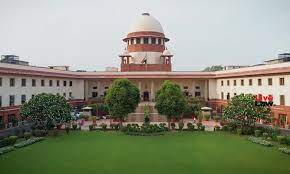The order passed by the learned Judge, running into more than a hundred pages, makes for an interesting reading. On one hand, the learned Judge has spent pages after pages to observe as to how it is not necessary, rather not permissible at the stage of consideration of grant of bail to consider as to whether a prima facie case is made out or not. (Para 23)
Having made the aforesaid observation on the one hand, the learned Judge, on the other hand, goes on to discuss the statements of some witnesses and observes that a prima facie case under Section 194 IPC is made out. The findings are totally contrary, to say the least. (Para 24)
The larned Judge has further observed that since the appellant, after filing of an FIR and filing of a charge-sheet, has neither challenged the same in a proceeding under Section 482 of the Code of Criminal Procedure, 1973 (“Cr.P.C.” for short) or under Article 226 of the Constitution of India before the High Court or under Article 32 of the Constitution of India before this Court, it is not permissible for her to contend that a prima facie case is not made out. (Para 25)
In the limited understanding of law that we have, the factors which are required to be taken into consideration at the stage of grant of bail are – (i) prima facie case, (ii) the possibility of the accused tampering with the evidence or influencing the witnesses, and (iii) the possibility of the accused fleeing away from the hands of justice. (Para 26)
No doubt, the gravity and the seriousness of the offence is yet another factor that has to be taken into consideration. (Para 27)
Taking into consideration that most of the evidence in the present case are documentary evidence, which are already in possession of the Investigating Agency and, further, that the charge-sheet has been filed, we find that she is entitled for bail. (Para 36)
Another factor that needs to be taken into consideration is that at the time of pronouncing the impugned order, the learned Judge, though noticing that on account of order of this Court dated 2nd September 2022 passed in Criminal Appeal No. 1417 and 1418 of 2022 the appellant was on interim bail, directed her to surrender immediately. The appellant prayed for stay of the said order for thirty days. However, the said prayer was also rejected. We fail to understand as to what was the alarming urgency to direct the appellant to surrender immediately, particularly, when the appellant was enjoying the interim protection under the orders of this Court from 2nd September 2022. (Para 37)
Insofar as the apprehension of the prosecution that she may influence the witnesses is concerned, the concern of the prosecution can be taken care of by directing her not to make any attempt to influence the witnesses. (Para 38)
The appellant is directed to be continued on bail, which was granted to her in terms of the order dated 02nd September 2022. The appellant has already surrendered her passport, which shall continue to be in the custody of the Sessions Court. (Para 41)
SUPREME COURT JUDGMENT
Citation: 2023 STPL(Web) 77 SC
TEESTA ATUL SETALVAD Vs. STATE OF GUJARAT
Criminal appeal no(s). 2022 of 2023 (@ SLP (CRL) NO.8503/2023)-Decided on 19-7-2023
Click to See Full Text of Judgment: 2023 STPL(WEB) 77 SC







